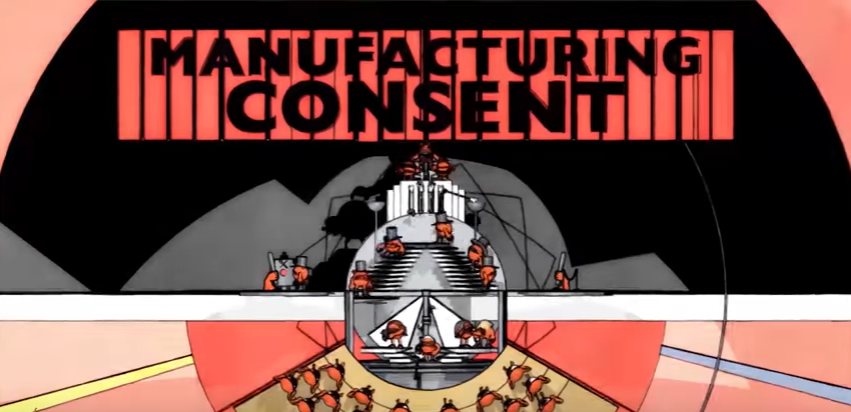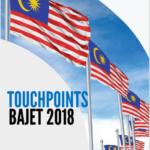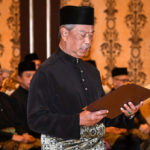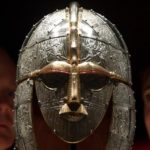
This book discussed the double-standard of U.S. foreign policies and the mass media who helped control public perception so that these policies can continue unimpeded. The propaganda propagated by U.S. media were discussed, the reasons for this phenomenon were given. Herman and Chomsky introduced a series of “filters” in their “propaganda model” which explain why the media followed state’s narrative like a herd of sheep.
In their long introduction, they pointed out that how commercialization has blurred the line between editorial and advertising. Also in the introduction were criticism of the use of chemical weapons by the U.S. including concentrated arsenic-based and dioxin-laden herbicides, Agent Orange, napalm and phosphorus bomb against South Vietnam, Laos, and Cambodia – a heinous crime which was not reported by the mass media. The media also published biased report in-line with U.S. interest, with worthy victims, such as the people killed by Pol Pot were written clearly to identify the party responsible for the killing. Unworthy victims such as the one killed by Indonesian regime under Suharto, were written passively, leaving out the party who did the killing, for example The New York Times reported “a 1965 coup led to the massacres of hundred s of thousands of supposed communists” – here we can’t tell who did the killing.
Walter Lippmann referred to the special importance of propaganda, which he called “manufacture of consent”. It serves as an organ for a popular government which fix the premises of discourse, the elite decides what the general populace can see, hear, think, and discuss.
“A mass movement without any major media support, and subject to a great deal of press hostility, suffers a serious disability, and struggles against grave odds” – Chomsky and Herman argue that many labor movement fall into serious disability once their alternative mass circulation disappeared, this is due to the contribution of one of the filter – advertising. A paper which does not center itself on consumerism and selling product will ultimately lose against other publication in which many of their readers are buyers, such publication attracted advertisers and gave them extra capital to compete.
Sourcing is also one of the filter in the mass media where “the citizenry pays to be propagandized”. Government and largesse has easy access to media coverage as they become the source of news, the media depend on them to manufacture news. They provide media relation services (paid by taxpayer) to facilitate the media. The mass media in turn will not criticize them as they are afraid to lose their source. Other critical source will have a hard time to penetrate through the media and get coverage as their resources is limited, they usually will not pass the gatekeeper.
As the authors dive in specifically on the propaganda of U.S. foreign policy, the media acted as if the government has said “concentrate on the victims of enemy powers and forget about the victims of friends”. On this basis the concept of “worthy victim” and “unworthy victim” are developed. Coverage will be given extensively toward enemy victim as they are a “worthy victim” in order to demonize the enemy. But when the same crime perpetrated by U.S., their client, or their friends, the coverage was virtually non-existent, they are regarded as “unworthy victim”. The U.S. always shows their hypocrisy in its foreign policy, suppressing bad news when their supported dictators cooperated, and denounced them once they fall.
The book also discussed the used of propaganda on foreign election result such as in Vietnam, Guantemala, and El Salvador, whenever the result does not favored U.S. desired candidate the election result was not accepted, rebellion is no longer portrayed as rejection of democracy, large turnout was no longer proof that the elected has a legitimate mass popular support. There are also planted observers by the U.S. government which was branded as “expert’ to give the media propaganda direction. We see this trend over and over again, recent case in 2019 was in Venezuela where the U.S. recognized the unelected self-declared president as a legitimate president, never mind the election result.
In cases of foreign elections the media accepted the framing and analysis provided by the states, the media role is more on channeling the information to the public. In case of the killing of the pope in 1981, the media play a larger role as agent of disinformation. The media help originating false claim,and keep the manufactured stories alive throughout the case.
Discussing the Indochina war, the book discussed how the U.S. bombed and invaded Cambodia, mobilizing the embittered peasant to the cause of the Khmer Rouge. The media facilitate U.S. aggression by framing the bombing in Vietnam as “defending South Vietnam”, and there is no recognition in the media that U.S. committed an act of aggression by invading Vietnam. The U.S. understand that it has no popular support, they were weak politically in Vietnam, political settlement thus is not an option, the only strength it has was military. At the end, the U.S. signed the Paris Agreement which incorporated many principles rejected by the U.S. in Geneva before the escalation of war started.
The result of media obedience to state power, Herman and Chomsky argued, was that the state can commit serious war crimes unimpeded, without the outrage of domestic polity. In conclusion,they concluded that the media has failed to serve their real “societal purpose”, that is to search of the truth independent from authority and enable the public to assert meaningful control over the political process by giving them information needed for intelligent discharge of political responsibilities. Instead the media functioned as a ideological institution and state propaganda tool to defend the economic, social, and political agenda of the elite group.
Related Posts
Author of several books including Berfikir Tentang Pemikiran (2018), Lalang di Lautan Ideologi (2022), Dua Sayap Ilmu (2023), Resistance Sudah Berbunga (2024), Intelektual Yang Membosankan (2024), Homo Historikus (2024), DemokRasisma (2025), dan Dari Orientalisma Hingga ke Genosida (2025). Fathi write from his home at Sungai Petani, Kedah. He like to read, write and sleep.





